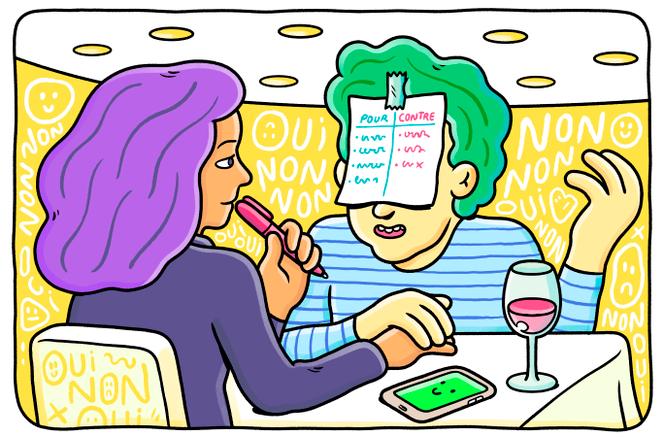


Over lunch in Paris one day, my French friend Claire tells me that her husband has no flaws.
This is odd. I know Claire's husband, and could list five or six things that are wrong with him. Then another friend interjects to say that her French boyfriend used to say something similar: "I love you for your faults."
As an American living in Paris, it's one of those "no kidding" moments of cultural difference, like when I realized there's an obsession with teaching kids cursive, or that there are two weeks of school holidays every six weeks. I began noticing versions of this idea – loving someone for their flaws – in movies, magazines and song lyrics too. It's a kind of French romantic ideal.
My own partner is British, and while I admire his judgment on politics and people, his flaws drive me nuts, especially his uselessness at any practical task. He once couldn't light the candles on my birthday cake. "If I ever divorce you, it will be for someone who can hang curtains," I said one night, as I was standing on a ladder in our living room. My own flaws infuriate him, too. We have no shortage of accumulated resentment.
Is there something in the "French" approach to coupledom that could help us? Could this small adjustment make a big difference? I'm skeptical. There's plenty of divorce in France. But my American approach to coupledom isn't working brilliantly. I was raised with the idea of the self-expressive marriage, a relatively new concept. Until the 1850s, most Americans married in order to grow food together, and help keep intruders away. When industrialization arrived, and families no longer had to sew their own clothes and churn their own butter, they began pairing up for "sentimental" reasons like love, passion and a sense of belonging.
The "self-expressive era" began in the mid-1960s, and we're still in it, psychologist Eli Finkel writes in his 2017 book The All-or-Nothing Marriage. Finkel argues that we still choose partners for love and belonging, and to share the rent, but we also expect them to help fulfil our need for personal growth, self-esteem and "mutual insight".
When I got married, I took this personal-growth model for granted. French anthropologist Raymonde Carroll writes in Cultural Misunderstandings: The French-American Experience (1992) that an American spouse is an in-house therapist and pep squad, who "must encourage him in his wildest undertakings, even if I am the only one to do so, if the undertaking will make him happy".
And an American couple is a social unit. They typically expect to be invited out as a pair and not voluntarily spend much time apart. In this context, Carroll writes: "Not inviting my partner is a refusal, a rejection, of me."
You have 70.22% of this article left to read. The rest is for subscribers only.
